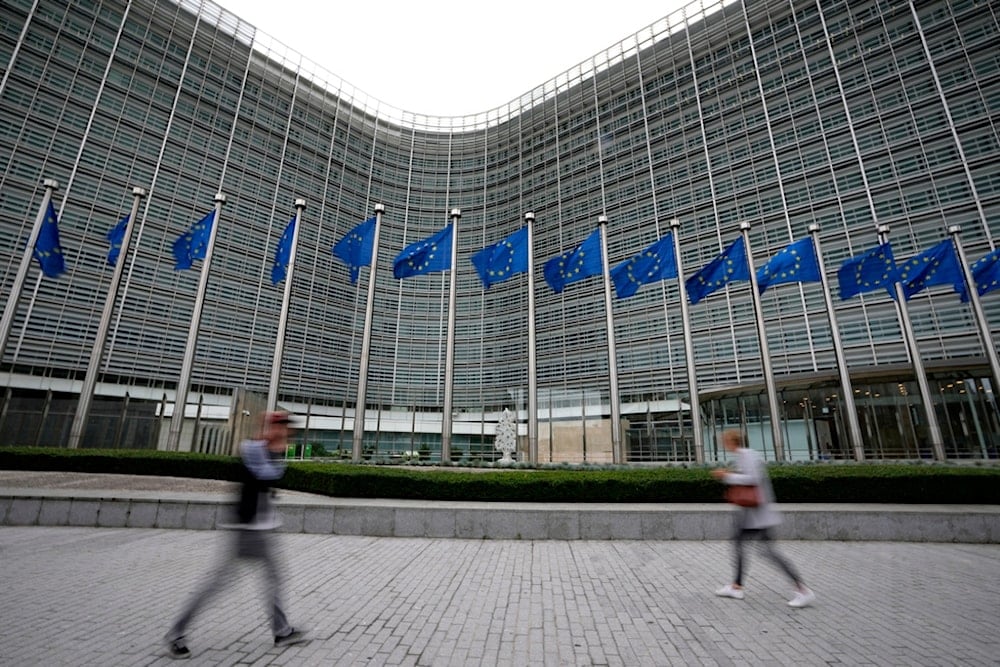EU member states push for renewed engagement with Damascus: FT
The proposal comes as the EU foreign ministers prepare for a critical meeting to discuss Middle Eastern affairs.
-

European Union flags wave in the wind as pedestrians walk by EU headquarters in Brussels, on Sept. 20, 2023. (AP)
A coalition of EU member states is pushing for a significant shift in the EU's approach to Syria, calling for increased engagement with Syrian official authorities to enhance political leverage in the country, the Financial Times reported on Monday.
This proposal comes as the EU foreign ministers prepare for a critical meeting to discuss Middle Eastern affairs.
Since 2011, the EU has suspended their relations with Damascus. The purpose of doing so was to weaken Assad's government by supporting militant groups in the country. Then, in 2017, the EU adopted a strategy aimed at facilitating a political transition in Syria.
Eight EU capitals—Rome, Vienna, and Athens, among others—are now advocating for a reassessment of this strategy.
In a letter to EU's chief diplomat Josep Borrell, the foreign ministers of Austria, Croatia, Cyprus, Czech Republic, Greece, Italy, Slovakia, and Slovenia argue that the landscape has significantly changed since 2017.
Read more: Assad to Putin: Russian unshakeable stances pave way for multipolarity
They point to the stabilization of the Syrian crisis, the situation in Ukraine, and the rapprochement between Damascus and Arab states as critical developments that necessitate a new EU approach.
"Our goal is a more active, outcome-driven, and operational Syria policy. This would allow us to increase our political leverage [and] the effectiveness of our humanitarian assistance," the ministers wrote.
The coalition suggests several measures to recalibrate the EU's stance; these include the appointment of an EU Syria envoy which would facilitate dialogue with Syrian actors and neighboring countries, renewing diplomatic contacts to foster a more direct communication channel, and the call for a discussion on the impact of EU sanctions, arguing that over-compliance in the banking sector is inadvertently harming the Syrian population.
Although the proposal faces potential resistance, the ministers say that evolving circumstances require the EU to adapt its policies, claiming this would ensure that its humanitarian efforts are more effective and politically significant.
Read more: Western leaders can no longer be taken seriously: Al-Assad

 2 Min Read
2 Min Read








